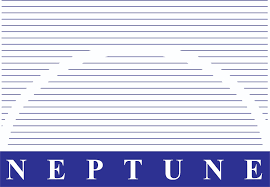
₹ 122000
₹115- ₹122
1000
₹133
9

30 May 2025
3 Jun 2025
4 Jun 2025
Application Details
Neptune Petrochemicals IPO is a bookbuilding of ₹73.20 crores. The issue is entirely a fresh issue of 60.00 lakh shares.
Neptune Petrochemicals IPO bidding opened for subscription on May 28, 2025 and will close on May 30, 2025. The allotment for the Neptune Petrochemicals IPO is expected to be finalized on Monday, June 2, 2025. Neptune Petrochemicals IPO will be list on NSE SME with a tentative listing date fixed as Wednesday, June 4, 2025.
Neptune Petrochemicals IPO price band is set at ₹115 to ₹122 per share. The minimum lot size for an application is 1000. The minimum amount of investment required by retail investors is ₹1,15,000. But it is suggested to the investor to bid at the cutoff price to avoid the oversubscription senerio, which is about to ₹1,22,000. The minimum lot size investment for HNI is 2 lots (2,000 shares) amounting to ₹2,44,000.
About Neptune Petrochemicals Limited (SME IPO)
Incorporated in October 2021, Neptune Petrochemicals Limited is engaged in the manufacturing and trading of a wide range of bitumen products and emulsions. Its product portfolio includes various grades of bitumen, such as polymer-modified bitumen and crumb-rubber-modified bitumen, catering primarily to the construction and industrial sectors. The company operates three manufacturing units located in Ahmedabad (Gujarat), Panipat (Haryana), and Kamrup (Assam).
In addition to manufacturing, Neptune also trades in bitumen and fuel oils, sourcing these from reputed suppliers to ensure consistent quality and customer satisfaction. The company is certified under ISO 2015 for Quality Management and Environmental Management, and OHSAS 2018 for Occupational Health & Safety. Committed to global standards, Neptune emphasizes high-quality, innovative production processes. Its products are sold across India and exported to neighboring countries like Nepal and Bhutan.
FAQ
IPO stands for "Initial Public Offering." It's the process through which a privately-held company becomes publicly traded by offering its shares to the general public and listing them on a stock exchange for trading. This allows the company to raise capital from investors and grants individuals and institutions the opportunity to invest in and own a portion of the company.
The life cycle of an IPO, or Initial Public Offering, begins with a company's decision to go public. It involves hiring underwriters, registering with regulatory authorities, determining the IPO price, marketing to investors, and the subscription period where investors place orders for shares. After allocation and listing, shares become publicly tradable, and the company enters the secondary market. Ongoing reporting and corporate governance are crucial as the company continues to operate as a publicly-traded entity. The IPO aims to raise capital for growth and provides investors with opportunities to trade shares in the company.
An IPO (Initial Public Offering) is when a private company goes public by selling shares to the public. Investors buy these shares, giving them ownership in the company. It's a way for companies to raise capital and expand. The process involves underwriters, regulatory filings, setting the IPO price, and marketing to investors. After the IPO, shares can be traded on a stock exchange. IPOs offer opportunities and risks, so investors should research and consider carefully.
"Upcoming IPOs" refers to initial public offerings that have been announced by private companies but have not yet occurred. These are companies that plan to go public in the near future by issuing shares to the public and listing them on a stock exchange. Investors often keep an eye on upcoming IPOs as they represent opportunities to invest in companies at their early stages of public trading, potentially capturing growth potential. These offerings are typically accompanied by significant media and investor attention as they approach their launch dates.
 Download
Download